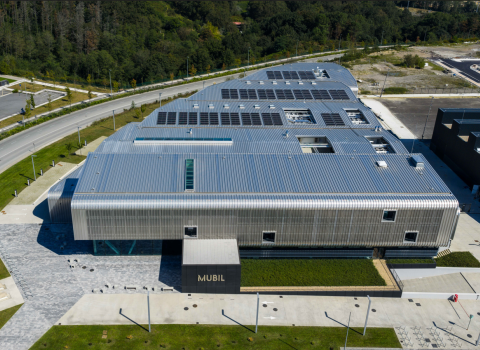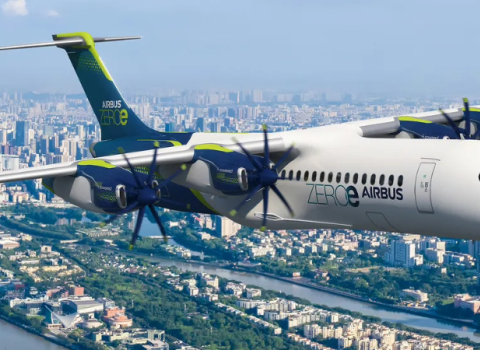Germany wants to become a world leader in the field of green hydrogen technologies. The Federal Ministry of Education and Research (BMBF) is therefore promoting the transition to a hydrogen economy with the flagship project H2Mare. The Bundesanstalt für Materialforschung und-prüfung (BAM) is contributing its many years of expertise in the fields of corrosion and corrosion protection to the major project.
The H2Mare flagship project aims to establish a whole new type of turbine at sea in the future – a solution which integrates an electrolyzer into an offshore wind turbine optimally for direct conversion of the electricity. In addition, the project will also investigate further offshore power-to-X processes.
Within four years, H2Mare - consisting of four joint projects with a total of 35 partners - is to lay the foundation for Germany's technological leadership in the field and support the achievement of the set climate targets by accelerating greenhouse gas reduction. The aim of H2Mare, which is coordinated by Siemens Energy and institutes of the Fraunhofer Gesellschaft, is, among other things, to achieve a significant cost advantage in the production of large quantities of hydrogen. H2Mare is to be funded by the BMBF with more than 100 million euros.
Last September, BAM pooled its many years of expertise in the field of hydrogen to form a competence centre H2Safety@BAM, thus supporting the German government's hydrogen strategy.
BAM is involved in H2Mare in two of the four sub-projects: PtX-Wind and TransferWind. The focus is on investigations into construction-related issues of corrosion and corrosion protection and the external corrosion of building and plant components. The results are to be incorporated into regulations and standardisation and ensure the continuous operational safety of offshore structures. The aim is to ensure a service life of at least 25 years for the plant parts and components.
"I am pleased that with our participation in the important flagship project H2Mare, we can make a contribution to the essential decarbonisation of the economy and society. Climate change makes it clear that no more time can be lost on this path," explains BAM President Prof. Dr Ulrich Panne.
H2Mare is one of three flagship projects being conducted by the German Federal Ministry of Education and Research, which is supporting Germany’s entry into the hydrogen economy with its largest initiative regarding the energy tran-sition to date. The three hydrogen flagship projects H2Giga, H2Mare, and TransHyDE are the result of an ideas competition and represent a central contribution on the part of the BMBF to the implementation of the National Hydrogen Strategy.
They are intended to remove existing hurdles impeding Germany’s entry into a hydrogen economy over the next four years. The goals of the projects are the serial production of large-scale water electrolyzers (H2Giga), the production of hydrogen and downstream products at sea (H2Mare), and the development of technologies for the transport of hydrogen (TransHyDE).
More than 240 partners from science and industry are working together on the three hydrogen flagship projects, which were launched on the basis of non-binding funding promises in the spring. In total, the funding will amount up to €740 million.
This article was first published on October 1 by BAM.





 A unique international forum for public research organisations and companies to connect their external engagement with strategic interests around their R&D system.
A unique international forum for public research organisations and companies to connect their external engagement with strategic interests around their R&D system.